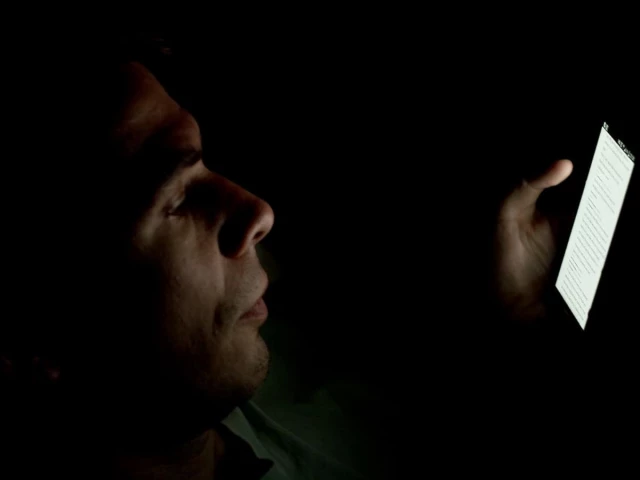Why are we so afraid to be bored in the 21st century? In a world full of digital distraction—scrolling through Facebook, TikTok, Netflix, to chasing Instagram likes— why does the minor moment of boredom send a shiver down our spine? Why we don’t want to truly embrace ourselves? Is it merely a desire for recognition, fear of being alone or something more sinister?
Franz Kafka once said:
"I am a cage, in search of a bird."
Perhaps the answer lies in virulent truth: boredom exposes us to the “hollow self”, an emptiness, uncomfortable moments when we are forced to confront ourselves and our existence, which leads to an unnerving question that haunts us all:
What is the point of it all? This is not only an idle curiosity but a profound existential crisis.
In the 21st century, where digital distractions are omnipotent, the existential horrors of boredom are more relevant than ever.
Our involuntary need to escape boredom illustrates a deeper fear, a fear of meaninglessness, of facing the void that veils itself under our curated digital lives. But by escaping from boredom, are we also fleeing from ourselves?
I would bring the views of Heidegger on the subject. He did not perceive boredom as a trivial annoyance. In his famous book, “Being and Time,” he breaks down it as an existential experience that pushes us to confront the nothingness at the heart of human existence.
Martin Heidegger did not view boredom as a trivial annoyance. In "Being and Time", he dissected it as an existential experience that forces us to confront the nothingness at the heart of human existence.
He identified three levels of boredom:
- Becoming bored by something specific which means a temporary irritation with a particular situation
- Being bored with something as a whole which means a generalized feeling of disinterest
- Profound boredom, which means the most terrifying form, where everything loses their meaning, revealing the void of existence.
Profound boredom robs away distractions, forcing us to grapple with the tarrying emptiness beneath everyday existence. Heidegger accounts that this confrontation was essential for authenticity.
However, in the 21st century, we have engineered a world where this confrontation is almost impossible. Digital gadgets, smartphones, social media, and endless content shield us from this void but at the expense of what? Are we losing our capacity for self-awareness, for authenticity, for meaning itself?
Indeed, I would not like to forget the mention of Jean-Paul Sartre here. He explored a similar existential terror in “Nausea” where the protagonist, Antoine Roquentin undergoes a nauseating realization: existence is absurd. People, objects and these routines, all lose their meaning, unveiling a grotesque reality.
Sartre argued that humans are “condemned to be free”— plunging into a meaningless world, loaded with responsibility to create our own purpose.
But today, our freedom has transformed into something more horrifying. Our identities are curated by social media, yet these only amplify the existential crisis: Who am I, really? Beneath the hashtags, filters and virtual likes, who am I without the digital masks?
Are we just empty mirrors of what we want other people to see, shadows projected onto virtual walls?
Boredom was viewed and welcomed as a gateway to knowledge and self-discovery in the past. Sufi mystics interpreted this emptiness as a divine invitation to transcend the ego and establish a connection with the Divine through the practices of Sama (spiritual listening) and Muraqaba (deep meditation).
They transformed boredom into spiritual rapture by dancing alone. Rumi captures the emptiness beautifully
"When you are alone, you are with the Beloved.
In that emptiness, you find fullness.
In that silence, you hear the eternal voice."
Similarly, the ancient philosophers embraced boredom as essential for deep thought and truth-seeking. They believed that only through solitude one could confront existence authentically. Buddhist monks embraced the discomfort of stillness through meditation, revealing the interconnectedness of existence.
Hermits and mystics sought radical solitude by breaking free from worldly illusions and discovering truths. Yet today, as we try to escape digital distractions, we must ask: By fleeing from boredom, are we also fleeing from self-discovery? They embraced boredom as a teacher which opens the pace for wisdom and self-discovery.
But in our world, we fear of being alone. We relate and equate solitude with loneliness and boredom with insignificance. We fill our smallest moments with digital noise.
Rediscovering oneself in an era, dominated by digital garbage, requires strict discipline and modern techniques. First, cut digital consumption, choose quality over quantity, and reduce compulsive distractions. Mindful reading of good books encourages deep reflection.
Engaging in meaningful conversation promotes creativity. Accept the existential journey as a path to self-discovery to fill the void and understand one’s inner voice.
Practice meditation early in the morning, maintain a mindful presence and engage in creative flow through writing, painting, or playing an instrument. Once a month, go for hiking or swimming.
Rather than perceiving boredom as an enemy, choose it as a way towards truth in our existence. In a world where digital distractions are almost inescapable. How can we reconnect with ourselves, our families, our cordial relations?
The choice is ours. Face the void or be consumed by it. Confronting the void is not easy. It requires courage and willingness to question. It demands us to shatter the illusions we have built behind the digital masks and confront the raw.
Can you bear to face yourself, or will you keep running? Who are you when the screens go dark? Who are you in the silence, in the boredom, in the void?
The void awaits. Will you confront it, or will it consume you?



COMMENTS (2)
Comments are moderated and generally will be posted if they are on-topic and not abusive.
For more information, please see our Comments FAQ